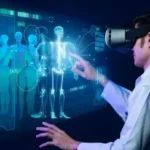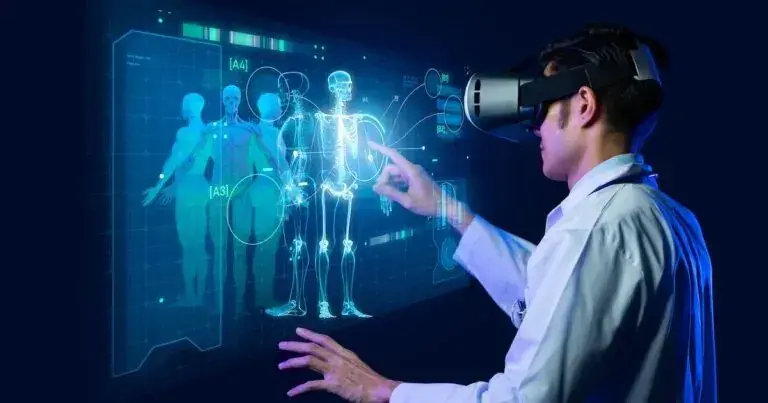ArdorComm Media Bureau
February 29, 2024
As technology advances at an unprecedented rate, its impact on various aspects of our lives becomes increasingly significant. In the realm of healthcare, artificial intelligence (AI) stands out as a transformative force with immense potential. However, to truly appreciate its importance and potential, it’s essential to delve into what AI has achieved and how it continues to shape the present and future of healthcare.
The numbers paint a compelling picture of AI’s growing influence in healthcare. With over 500 AI algorithms approved by the U.S. FDA, and digital health startups receiving billions in investments, it’s evident that AI is not just a theoretical concept but a tangible reality in the healthcare landscape. Projections indicate that the global market for AI-based healthcare solutions will exceed $208 billion by 2030, underscoring the significant investments and expectations surrounding AI in healthcare.
The promise of AI in healthcare is multifaceted, ranging from early disease detection to optimizing treatment plans and enhancing patient outcomes. For instance, AI algorithms have the potential to revolutionize cancer screening by analyzing vast amounts of data, including family history, imaging results, and genetic markers, to identify individuals at higher risk of developing the disease. Additionally, AI-powered interventions can monitor patients in real-time, enabling early detection of deteriorating health conditions such as sepsis, and facilitating timely medical interventions.
Despite the immense potential, the full-scale implementation of AI in healthcare presents numerous challenges. From regulatory hurdles to the need for extensive clinical trials and the integration of AI into existing healthcare workflows, realizing the promise of AI requires concerted efforts from various stakeholders. Moreover, it’s crucial to recognize that AI is not a replacement for human expertise but rather a powerful tool that complements clinical decision-making. Human clinicians bring invaluable insights and intuition to the table, which AI augments by processing vast amounts of data and identifying patterns that might elude human observation alone.
Currently, AI is being utilized in various medical applications, including screening tests for complex illnesses, monitoring patient vitals for signs of deterioration, and enhancing patient safety through early warning systems. Institutions are also leveraging AI to optimize resource allocation, improve operational efficiency, and streamline administrative tasks such as billing and coding. As AI continues to mature, its role in healthcare is expected to expand beyond individual applications to encompass organization-wide workflows, clinical decision support, patient engagement, and revenue cycle management.
Looking ahead, the future of AI in healthcare holds even more transformative possibilities. Medical assistants powered by AI are undergoing trials in medical facilities, with the potential to streamline scheduling, access relevant patient information, and assist healthcare providers in delivering personalized care. Moreover, AI-driven algorithms are expected to play a crucial role in organizing and analyzing vast amounts of medical data, leading to more precise diagnoses, personalized treatment plans, and better patient outcomes.
However, as AI becomes more integrated into healthcare systems, concerns about privacy, data security, and algorithmic bias must be addressed. Robust measures must be implemented to ensure that patient data is protected, and AI algorithms are trained on diverse and representative datasets to avoid perpetuating biases or disparities in healthcare delivery.
AI holds immense promise as a transformative force in healthcare, revolutionizing patient care, clinical decision-making, and operational efficiency. While challenges remain, the collaborative efforts of researchers, clinicians, policymakers, and technology developers are paving the way for a future where AI augments human expertise to deliver better healthcare outcomes for all. As we embark on this journey, it’s essential to recognize that AI is not a replacement for human judgment but a powerful tool that, when wielded responsibly, has the potential to revolutionize the practice of medicine.



AI benefits both patients and professionals by equipping healthcare organizations with algorithms that help them make better business and clinical decisions. Professionals then have the ability to make more accurate diagnoses, deliver personalized treatments, and reshape patient monitoring.